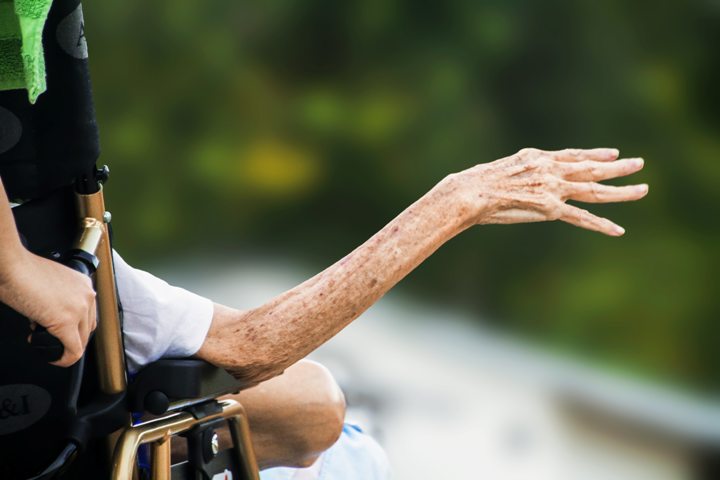Assessment on impact of COVID-19 on persons with disabilities in Zimbabwe
Persons with disabilities and representatives from Organisations that represent them were the primary research population targeted by the assessment.

The UNESCO Regional Office for Southern Africa conducted a Rapid Assessment on the impact of COVID-19 on Persons with disabilities in Zimbabwe from August to November 2020, which found out that persons with disabilities have experienced many challenges brought about and/or worsened by the COVID-19 pandemic and the related lockdown and containment measures.
Persons with disabilities and representatives from Organisations that represent them were the primary research population targeted by the assessment. Their views and stories from the core of the findings.
The assessment found out that due to lockdown regulations, the livelihoods of persons with disabilities have been negatively affected resulting in other social ills such as anxiety and increase in gender-based violence mainly faced by women and girls with disabilities. The study findings confirmed the hypothesis that the wellbeing of persons with disabilities has been disproportionately affected by COVID-19 and the lockdown measures, as stated by the United Nations Policy Brief -A Disability-Inclusive Response to COVID-19, released in May 2020.
Access to services such as healthcare, education, justice, accessible information has been severely affected by the lockdown restrictions put in place to reduce the spreading of the coronavirus. The banning of informal livelihood activities such as vending and begging has led to persons with disabilities experiencing acute challenges, as their sources of income have been disrupted. According to the study, income per month for persons with disabilities in the sample shrunk by 50% from ZW 2160.00 (US$43) per month pre-COVID-19 to ZW1080.00 (US$13) per month during COVID-19 period. This is against a poverty datum line of ZW 17957.00 (US$219) per month for a family of five.
Access to food and nutrition has been severely affected. Food aid from the government, humanitarian organizations, churches, civil society organizations and individuals has been reduced, as a result of COVID-19 and lockdown measures having disrupted business operations. While the government provides free medical services to registered persons with disabilities, drugs are in short supply in designated healthcare centres and the data shows that not all deserving persons with disabilities are accessing the services during the COVID-19 period. The study reveals that the number of meals for persons with disabilities nationally has been reduced from three (3) pre-COVID-19, to one (1) or two (2) during COVID-19.
Women and girls with disabilities experience challenges accessing Sexual Reproductive Health (SRH) services, a challenge that has been exacerbated by the pandemic.
The United Nations Population Fund (UNFPA) Zimbabwe indicated that GBV and other forms of abuse have been an area of greater concern towards persons with disabilities since the start of COVID-19.
The study shows that 79% of the respondents with disabilities are not aware of the government of Zimbabwe’s COVID-19 response plan. It also shows that none of the Organizations of persons with disabilities (DPOs) interviewed was consulted, or participated in the planning of the national response plan, and neither have they been involved in the response plan implementation structures and processes, bringing into question the inclusiveness of the response. However, DPOs have adapted their operations to continue to deliver the basic services to persons with disabilities during the lockdown period.
Considering the multiple types of disabilities and intersectional vulnerabilities, the study suggests that access to services differs by disability type, gender and the rural to urban divide. Looking ahead, the study provides 24 recommendations across 11 domains that include Livelihoods, Gender Equality, Food and Nutrition, Access to Healthcare, Inclusive Education, and Information, Participation in the National Response Planning, etc. These recommendations are of particular relevance as the country has gone back into a strict lockdown since 2 January 2021, as positive cases are spiking.
The research was conducted with the support of the "Our Rights, Our Lives, Our Future" (O3) programme and the United Nations Partnership for the Rights of Persons with Disabilities (UNPRPD) project on advancing the rights of women and girls with disabilities in Zimbabwe.
- READ MORE ON:
- COVID-19
- UNFPA
- Zimbabwe
- persons with disabilities
ALSO READ
How COVID-19 Exposed and Strained the Mental Health of Healthcare Professionals
Bridging the Gap: Gender Lessons from COVID-19 for Future Pandemics
Healthcare Headlines: From COVID-19 to New Pharmaceutical Ventures
Union Minister Rebukes Mark Zuckerberg Over COVID-19 Election Comments
Court Orders Compensation for Covid-19 Wedding Cancellation










